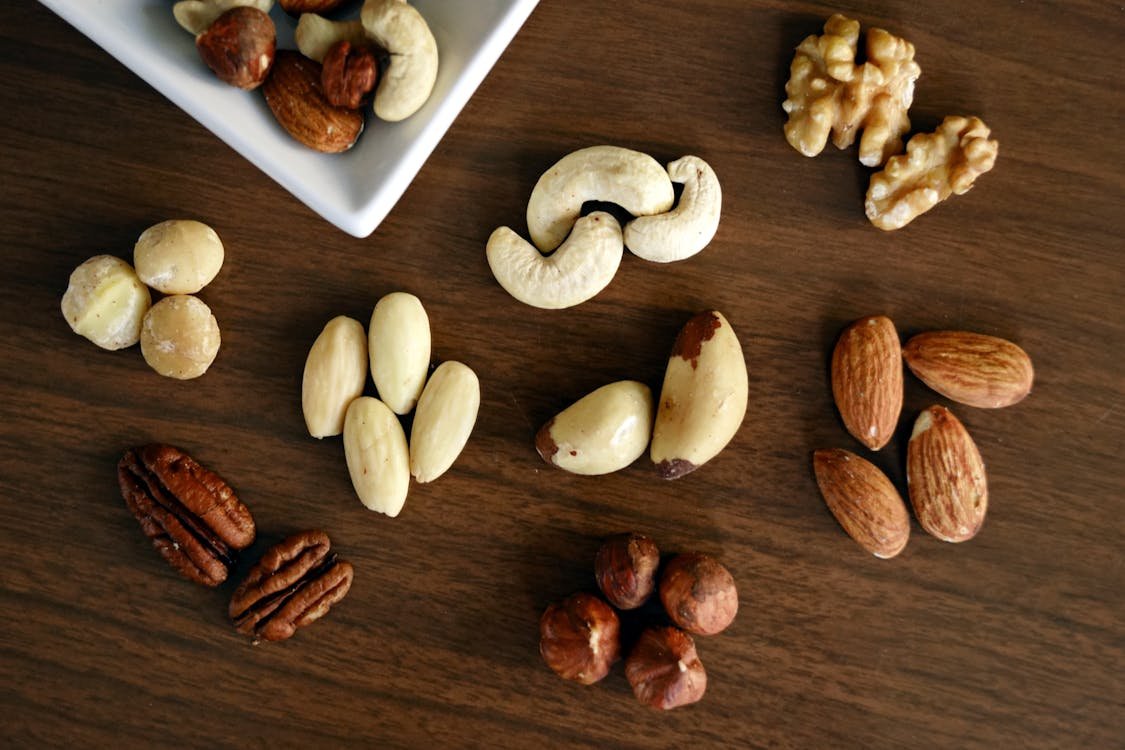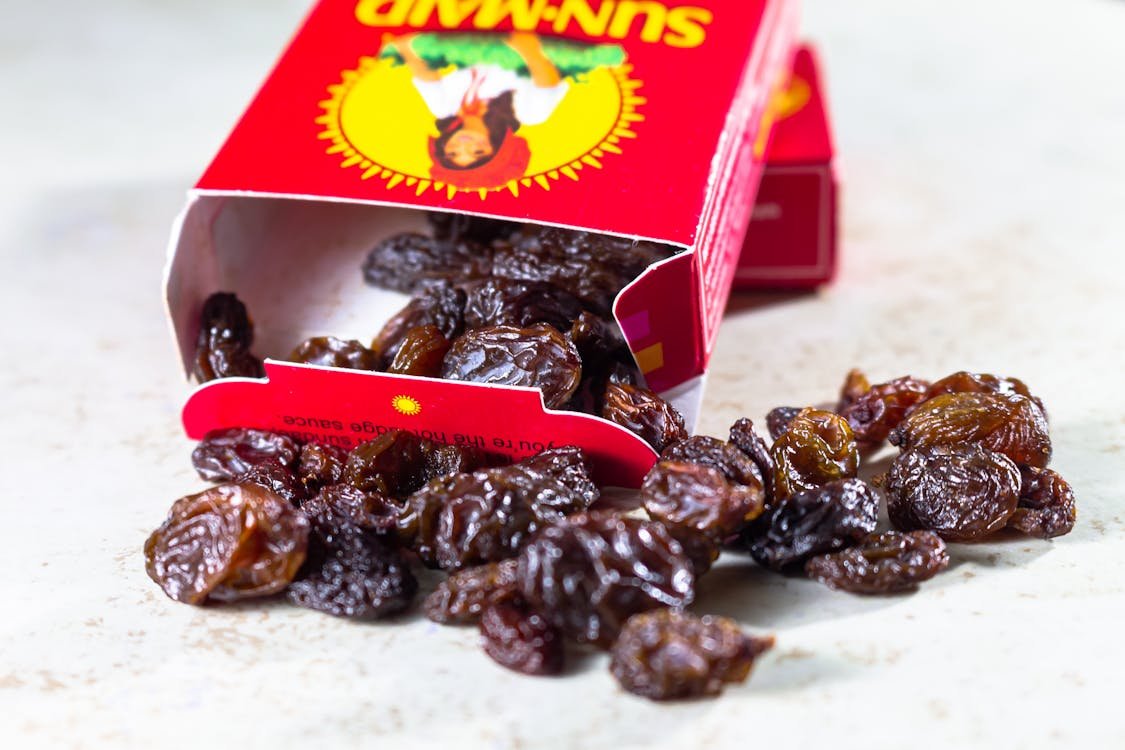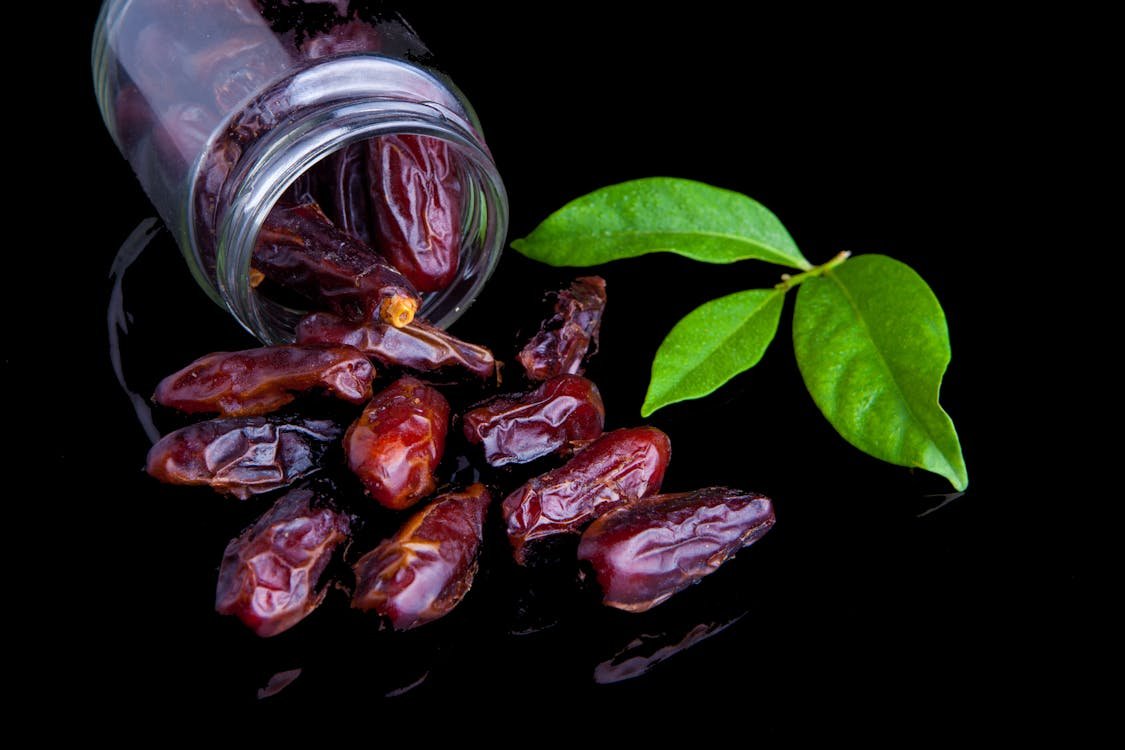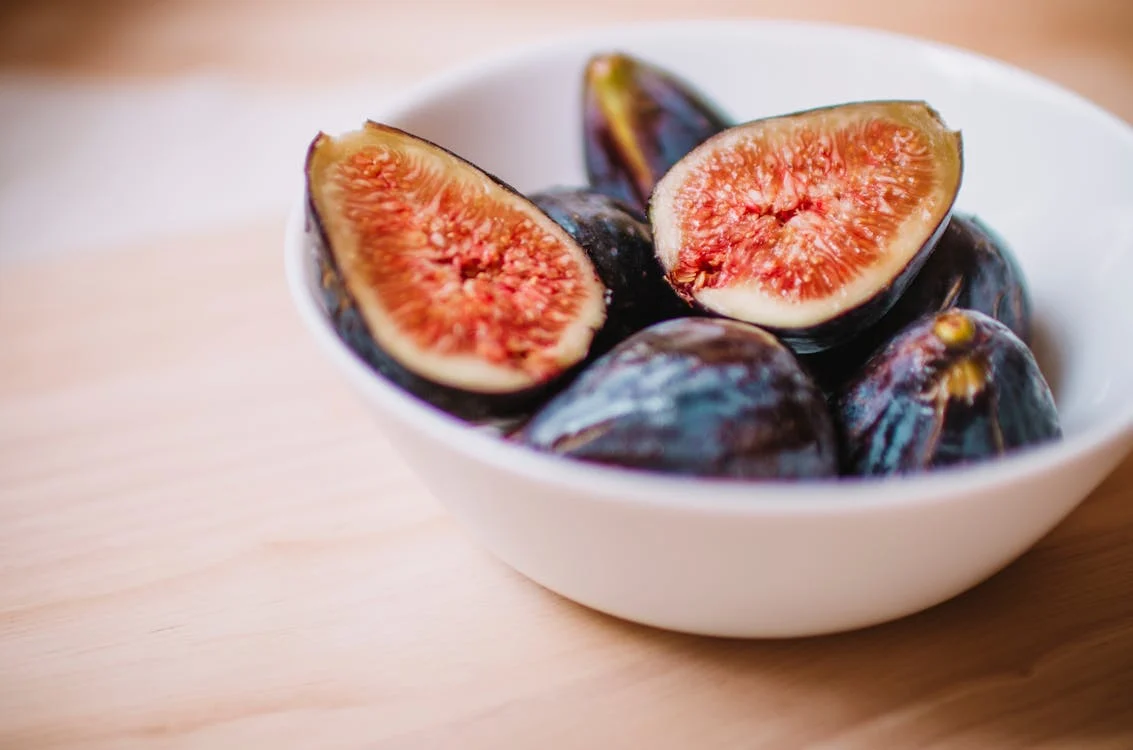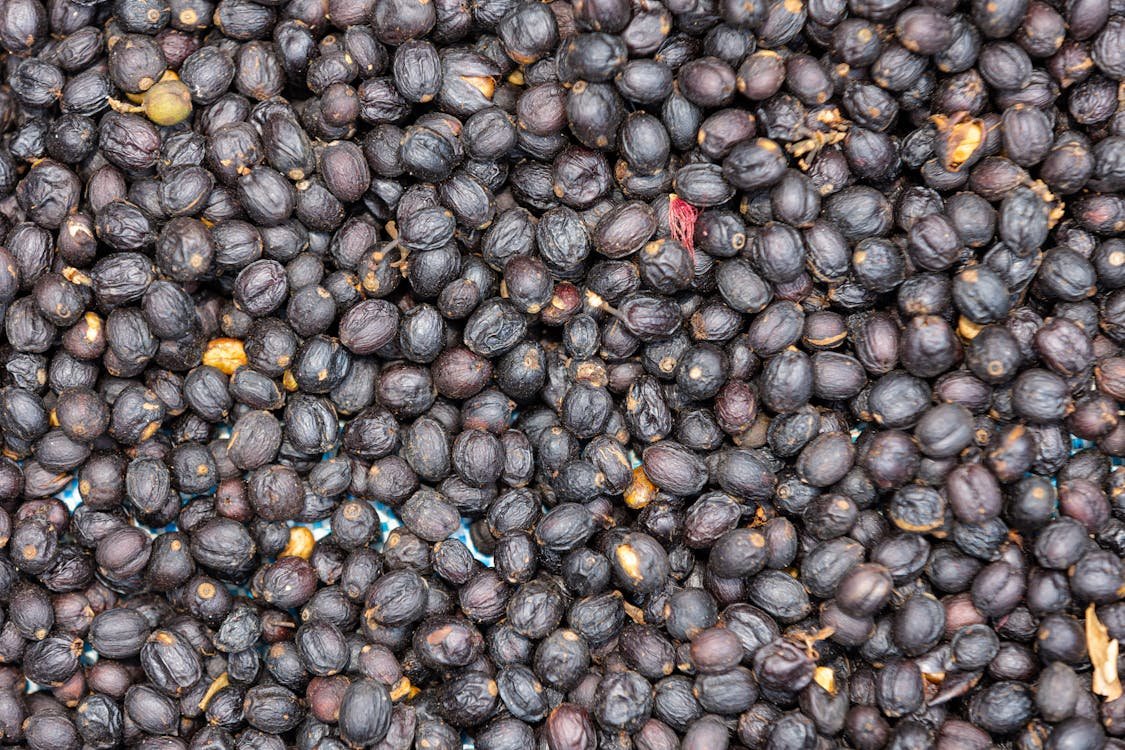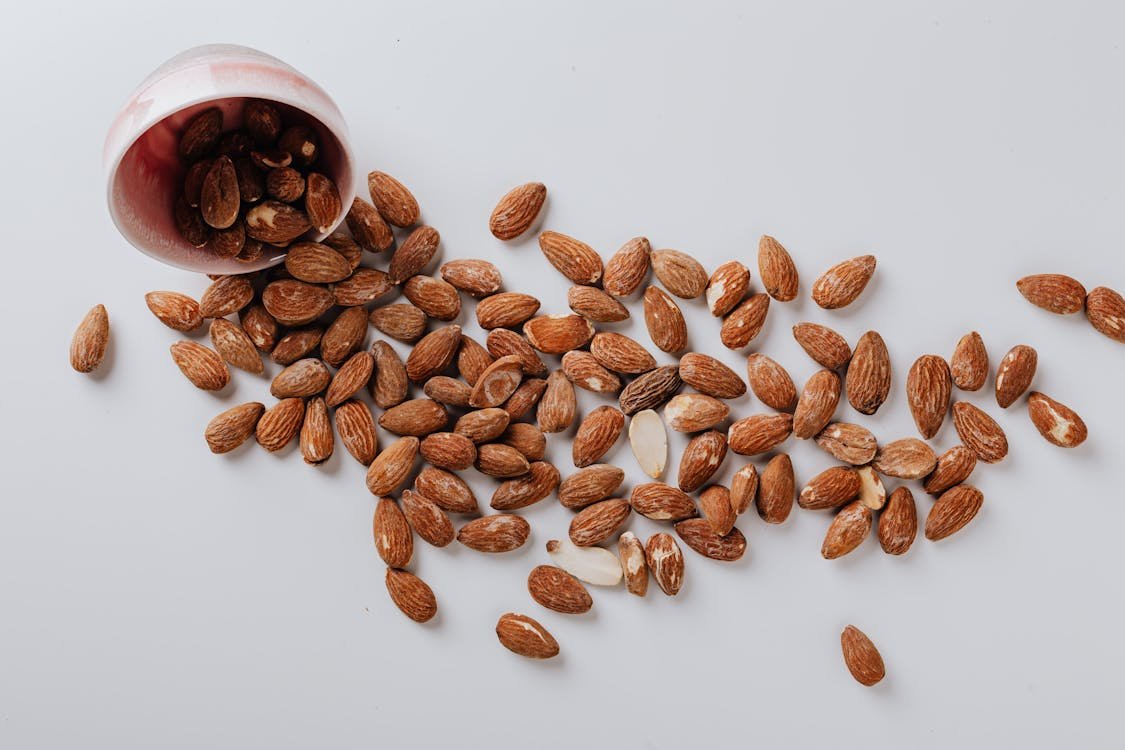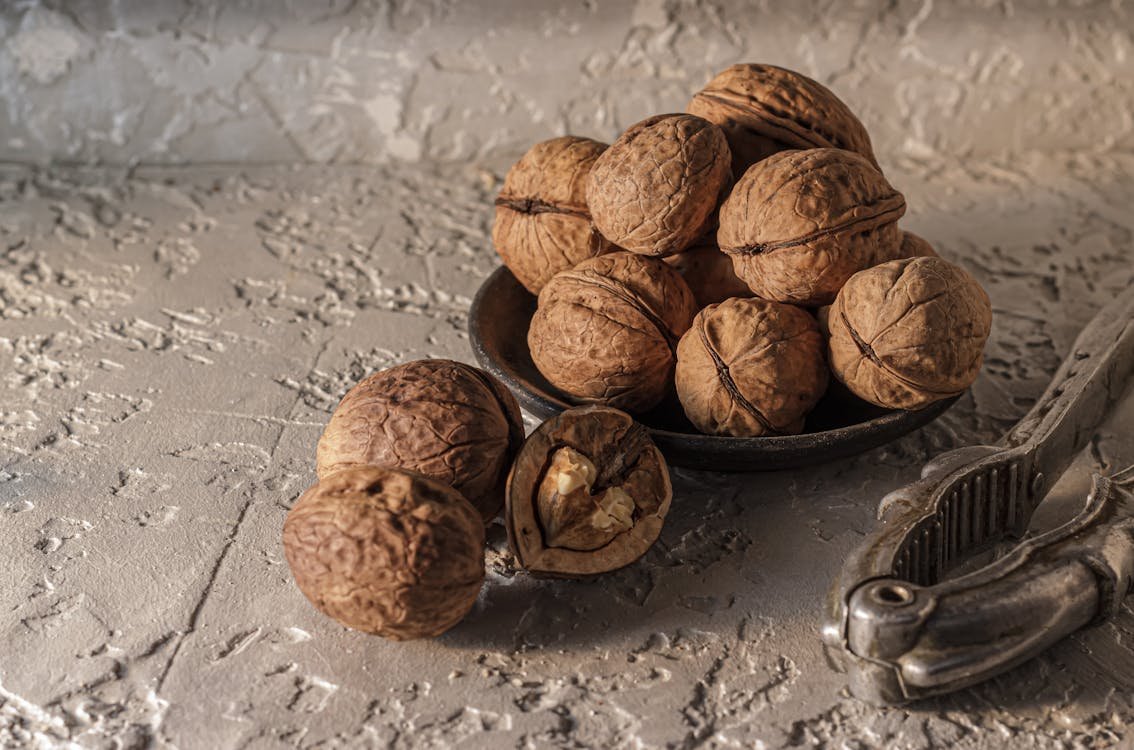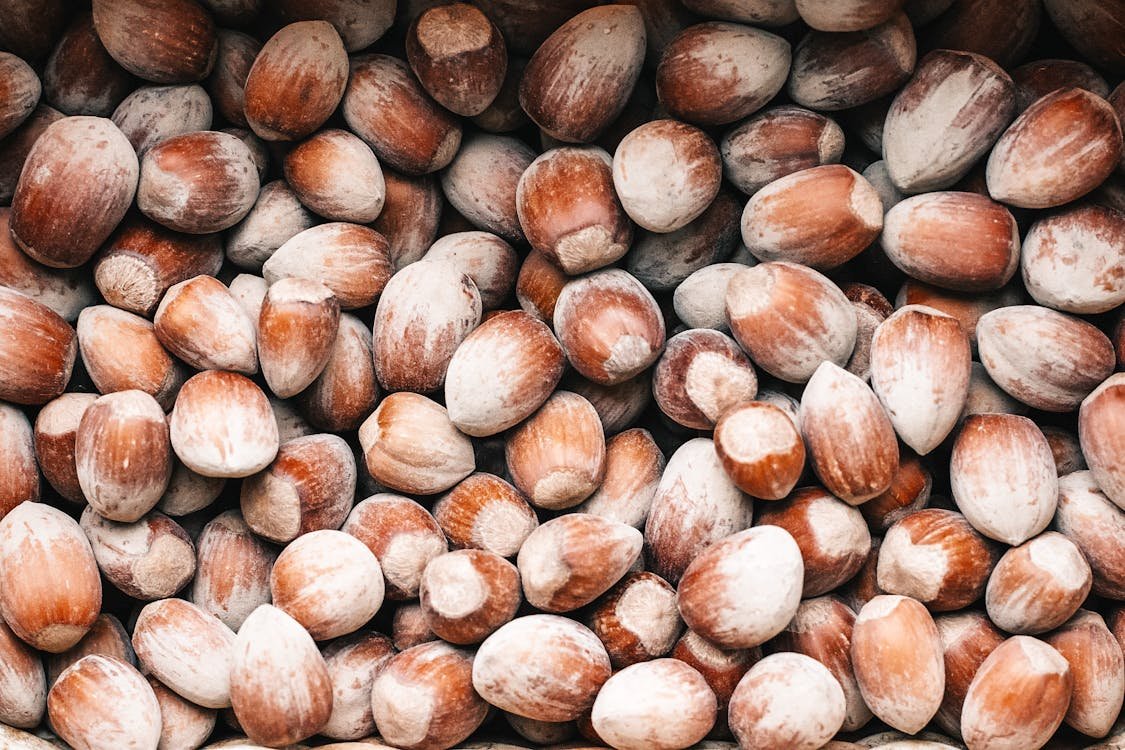1. Raisins (Dried Grapes)
Raisins are one of the most popular dry fruits, made by drying grapes. They are available in various colors, including golden, green, and black. Raisins are a great source of natural sugars like glucose and fructose, which provide quick energy. They are also packed with antioxidants, particularly flavonoids, which help combat oxidative stress and inflammation.
Nutritional Benefits:
- High in fiber, which promotes digestion.
- Rich in iron, helping prevent anemia and boosting energy.
- Contains potassium, essential for heart health and muscle function.
- Packed with antioxidants that fight free radicals.
Usage Tips:
- Sprinkle raisins over cereals, salads, or yogurt.
- Add them to baked goods like cakes, muffins, or cookies for natural sweetness.
2. Dates
Dates are the fruit of the date palm tree and are often dried to extend their shelf life. These sweet and chewy fruits are rich in sugars, including glucose, fructose, and sucrose, making them a natural energy booster. Dates are also an excellent source of essential vitamins and minerals, including fiber, potassium, magnesium, and vitamin B6.
Nutritional Benefits:
- High in fiber, which aids digestion and prevents constipation.
- Packed with antioxidants like flavonoids and carotenoids.
- Rich in potassium, which helps maintain fluid balance and reduces blood pressure.
- Known for their high caloric content, making them an excellent energy source for athletes.
Usage Tips:
- Dates can be enjoyed as a snack on their own or stuffed with nuts for an energy-packed treat.
- Blend them into smoothies for natural sweetness without refined sugars.
3. Apricots
Dried apricots are small, tangy fruits that are packed with nutrients. They are an excellent source of vitamin A, which supports vision and immune function, and are high in fiber, potassium, and antioxidants. These fruits are especially beneficial for those looking to improve their digestive health and maintain a healthy skin glow.
Nutritional Benefits:
- Rich in vitamin A, promoting healthy skin and eyesight.
- High in fiber, which supports healthy digestion.
- Good source of potassium, essential for maintaining electrolyte balance.
- Packed with antioxidants that protect cells from oxidative damage.
Usage Tips:
- Use dried apricots in salads or oatmeal for added flavor.
- Chop them and incorporate them into baked goods like granola bars or energy balls.
4. Figs
Figs are delicious and naturally sweet fruits, often dried for easy storage. Dried figs are nutrient-rich, packed with fiber, antioxidants, and essential minerals like calcium, potassium, and magnesium. These nutrients contribute to maintaining bone health, preventing constipation, and promoting heart health.
Nutritional Benefits:
- High in fiber, which aids digestion and alleviates constipation.
- Rich in calcium, promoting bone health.
- Loaded with potassium and magnesium, which help regulate blood pressure.
- Contains antioxidants like polyphenols that help fight free radical damage.
Usage Tips:
- Enjoy figs as a snack or chop them into small pieces and add them to salads or desserts.
- Mix dried figs with other dried fruits and nuts to make a healthy trail mix.
5. Prunes (Dried Plums)
Prunes are dried plums, known for their natural ability to improve digestion. They are incredibly high in fiber and contain sorbitol, a natural laxative that helps alleviate constipation. Prunes also contain antioxidants and are a good source of vitamin K, potassium, and iron.
Nutritional Benefits:
- High in fiber, promoting digestive health and regularity.
- Contain sorbitol, which acts as a natural laxative.
- Rich in antioxidants, which protect the body from cellular damage.
- Provide potassium, which helps regulate blood pressure.
Usage Tips:
- Prunes can be consumed as a snack or added to baked goods like muffins, cakes, or pies.
- Blend prunes into smoothies for a natural digestive boost.
6. Goji Berries
Goji berries, also known as wolfberries, are small, red dried fruits that have gained popularity for their rich nutritional profile. These berries are loaded with vitamin C, vitamin A, and antioxidants, making them one of the healthiest dry fruits available. They are also a source of protein, amino acids, and essential fatty acids.
Nutritional Benefits:
- Rich in vitamin C, which strengthens the immune system.
- High in antioxidants, particularly zeaxanthin, which promotes eye health.
- Contain polysaccharides that support immune function and reduce inflammation.
- Known for boosting energy and stamina.
Usage Tips:
- Add goji berries to smoothies, yogurts, or salads for a burst of nutrients.
- Use them in baking or mix them into homemade granola bars for a superfood snack.
7. Almonds
Almonds, although technically seeds, are often considered dry fruits. Dried almonds are packed with heart-healthy fats, protein, fiber, and essential vitamins and minerals, including vitamin E, magnesium, and calcium. Consuming almonds regularly can help improve cholesterol levels and support overall heart health.
Nutritional Benefits:
- High in monounsaturated fats, which promote heart health.
- Packed with vitamin E, a powerful antioxidant that supports skin health.
- Good source of protein and fiber, which help with muscle growth and digestion.
- Rich in magnesium, promoting healthy nerve and muscle function.
Usage Tips:
- Enjoy almonds as a standalone snack or use them to make almond butter.
- Add them to baked goods, salads, or sprinkle them over yogurt or oatmeal for a satisfying crunch.
8. Cashews
Cashews are another popular dry fruit that provides a range of nutrients. These kidney-shaped nuts are high in monounsaturated fats, protein, and antioxidants. Cashews are also a good source of vitamins like vitamin E and B6, and minerals such as magnesium, phosphorus, and zinc.
Nutritional Benefits:
- Rich in heart-healthy fats that help reduce bad cholesterol levels.
- High in protein, making them a great snack for vegetarians.
- Contains zinc, which is essential for immune function and skin health.
- A source of magnesium, supporting bone and muscle health.
Usage Tips:
- Cashews can be eaten as a snack or used in a variety of dishes such as curries, stir-fries, and salads.
- Blend them into smoothies or use them as a base for making vegan cheese and sauces.
9. Walnuts
Walnuts are another healthy dry fruit packed with omega-3 fatty acids, antioxidants, and fiber. They are particularly beneficial for brain health due to their high content of DHA (docosahexaenoic acid), a type of omega-3 that supports cognitive function.
Nutritional Benefits:
- High in omega-3 fatty acids, which support heart and brain health.
- Rich in antioxidants, which protect cells from oxidative damage.
- Good source of fiber, promoting healthy digestion.
- Contains melatonin, which can help regulate sleep patterns.
Usage Tips:
- Add walnuts to your breakfast cereal, yogurt, or oatmeal for added crunch.
- Chop them and include them in baked goods like brownies, cookies, or cakes.
10. Hazelnuts
Hazelnuts, also known as filberts, are nutrient-dense dry fruits that provide a variety of health benefits. They are packed with heart-healthy fats, fiber, antioxidants, and vitamins. Hazelnuts are especially known for their role in supporting cardiovascular health.
Nutritional Benefits:
- Rich in healthy fats, which support heart health.
- Packed with vitamin E, promoting healthy skin and reducing inflammation.
- High in fiber, aiding digestion and improving gut health.
- Contains antioxidants like proanthocyanidins that fight free radicals.
Usage Tips:
- Enjoy hazelnuts as a snack or add them to smoothies for a nutty flavor.
- Incorporate them into baked goods, salads, or make your own homemade hazelnut butter.
